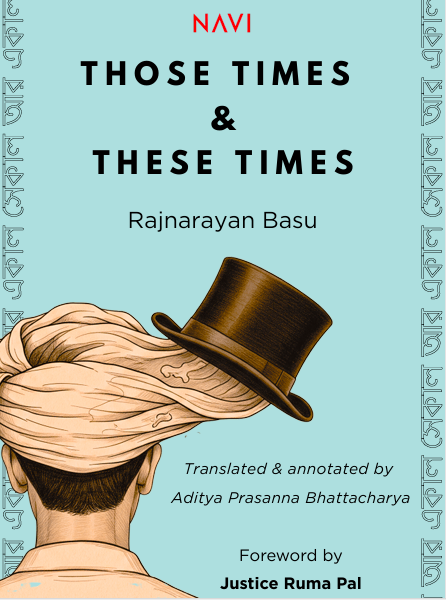
MORE ABOUT THE BOOK
Basu is part chronicler, part critic: lamenting the physical and moral decline of his contemporaries, the blind imitation of Western customs, and the slow fading of native arts and language. Yet for all his sharpness, Basu ends with hope, urging his countrymen not to lose heart. Fearless, candid, and full of life, Those Times & These Times is as much a conversation with our own era as it is a record of his.
In addition to being rich source of history, Those Times & These Times is startlingly relevant today. In an age of rapid modernisation and cultural uncertainty, Basu’s warnings against blind imitation, loss of language, and hollow notions of progress strike closer to home than we might expect. His voice deserves to be heard again—not as nostalgia, but as critique, comedy, and counsel. This translation is only a beginning, inviting readers to reflect on the dance between continuity and change, and perhaps find not just answers, but new questions for the bewildering times we live in.
In addition to being rich source of history, Those Times & These Times is startlingly relevant today. In an age of rapid modernisation and cultural uncertainty, Basu’s warnings against blind imitation, loss of language, and hollow notions of progress strike closer to home than we might expect. His voice deserves to be heard again—not as nostalgia, but as critique, comedy, and counsel. This translation is only a beginning, inviting readers to reflect on the dance between continuity and change, and perhaps find not just answers, but new questions for the bewildering times we live in.

